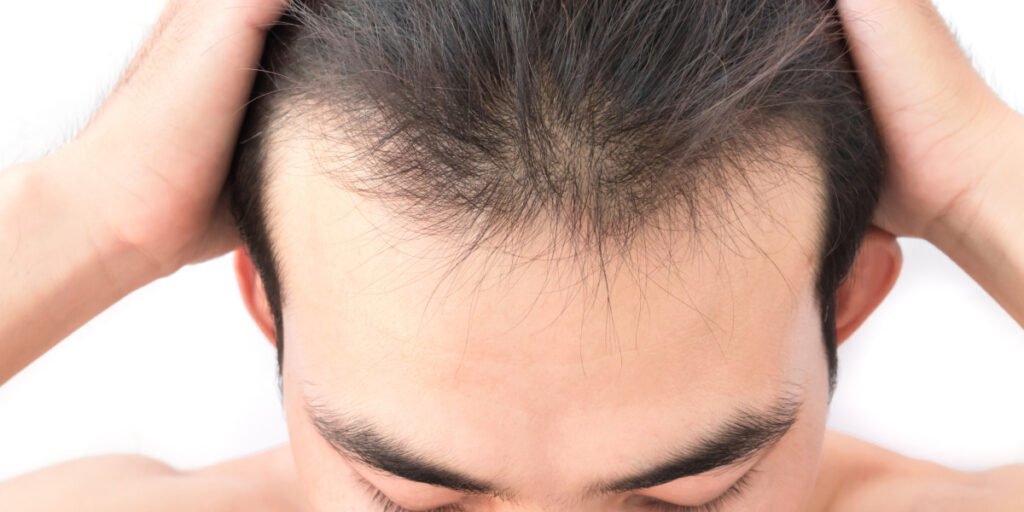Stem cell hair restoration is increasingly popular in South Korea, especially among patients seeking non-surgical, regenerative treatments for hair loss. But as with any medical procedure, safety and efficacy are essential considerations. So, how safe is stem cell therapy for hair restoration? And what do clinical studies in Korea say?
✅ Stem Cell Hair Restoration: A Safe, Minimally Invasive Approach
Korean dermatology and hair clinics emphasize safety in every aspect of stem cell treatment — from cell harvesting and processing to application. Most procedures use autologous cells (from the patient’s own body) or well-screened allogeneic sources (like umbilical cord-derived cells), reducing the risk of immune reactions or infection.
Why It’s Considered Safe:
- Low risk of rejection with autologous (self-derived) cells.
- No general anesthesia required — treatments are outpatient-based.
- Minimal downtime — mild redness or sensitivity may occur but resolves quickly.
- No systemic side effects — since treatment is localized to the scalp.
- No synthetic drugs or hormones involved.
🧪 What Korean Clinical Studies and Trials Say
South Korea is known for its advanced research in regenerative medicine. A number of peer-reviewed studies and clinical trials conducted in Korea have demonstrated both the safety and effectiveness of stem cell-based hair regrowth therapies.
1. Study on ADSC-Conditioned Media in Alopecia Patients
Published in: Journal of Dermatological Treatment (Korea, 2020)
- Participants: 27 patients with androgenetic alopecia.
- Treatment: Weekly application of ADSC-conditioned media with microneedling.
- Results: Significant increase in hair density and thickness after 12 weeks.
- Safety Outcome: No adverse effects reported. All participants tolerated the procedure well.
2. Umbilical Cord-Derived MSCs for Hair Loss
Published in: Archives of Aesthetic Plastic Surgery (Seoul, 2021)
- Participants: 18 patients with diffuse hair thinning.
- Treatment: Injections of UC-MSC-derived exosomes over 3 months.
- Results: Average 27% increase in hair density and notable reduction in scalp inflammation.
- Safety Outcome: No immune reactions or infections noted. Mild swelling at injection sites was transient.
3. Clinical Trial: Exosome Therapy in Female Pattern Hair Loss
Conducted at: Yonsei University Medical Center, 2022
- Participants: 42 women aged 30–55.
- Treatment: Scalp injections of exosomes derived from stem cell culture fluid.
- Results: Improved hair texture and regrowth in over 85% of patients.
- Safety Outcome: Zero severe adverse events. Mild redness or itching resolved in under 48 hours.
🔍 Safety Standards in Korean Clinics
Top clinics in South Korea operate under strict regulatory oversight, often exceeding global norms. Here’s how they maintain a high level of safety:
- GMP-Certified Laboratories: Stem cells are processed in Good Manufacturing Practice facilities to ensure sterility and quality.
- IRB-Approved Protocols: Many clinics follow Institutional Review Board-approved guidelines, especially when part of clinical research.
- Screened Donor Material: If using allogeneic (donor) cells, only screened, disease-free sources (e.g., umbilical cord tissue) are used.
- Post-Treatment Monitoring: Patients are monitored closely for scalp condition, inflammation, or allergic reaction.
🗣 Patient Testimonials and Real-World Safety
Many patients — including medical tourists from the U.S., Europe, and the Middle East — report positive experiences in Korean clinics. Common sentiments include:
- “I was worried about side effects, but it was painless and safe.”
- “No downtime — I went back to work the next day.”
- “My hair started growing back without needing a transplant.”
🚨 Are There Any Risks?
While rare, here are a few potential minor risks:
| Risk | Likelihood | Management |
|---|---|---|
| Mild redness/swelling | Common | Resolves in 24–48 hrs |
| Temporary shedding | Rare | Part of natural hair cycle |
| Localized itching | Rare | Managed with topical creams |
| Infection | Extremely rare | Prevented by sterile technique |
🧬 Summary: What the Science Says
Korean clinical studies consistently show that stem cell-based hair restoration is safe when performed in qualified clinics. Whether using ADSCs, umbilical stem cells, exosomes, or conditioned media, the treatments are non-toxic, minimally invasive, and well-tolerated.
For those seeking a non-surgical yet scientifically backed solution to hair loss, Korean clinics offer one of the safest and most advanced options in the world.




